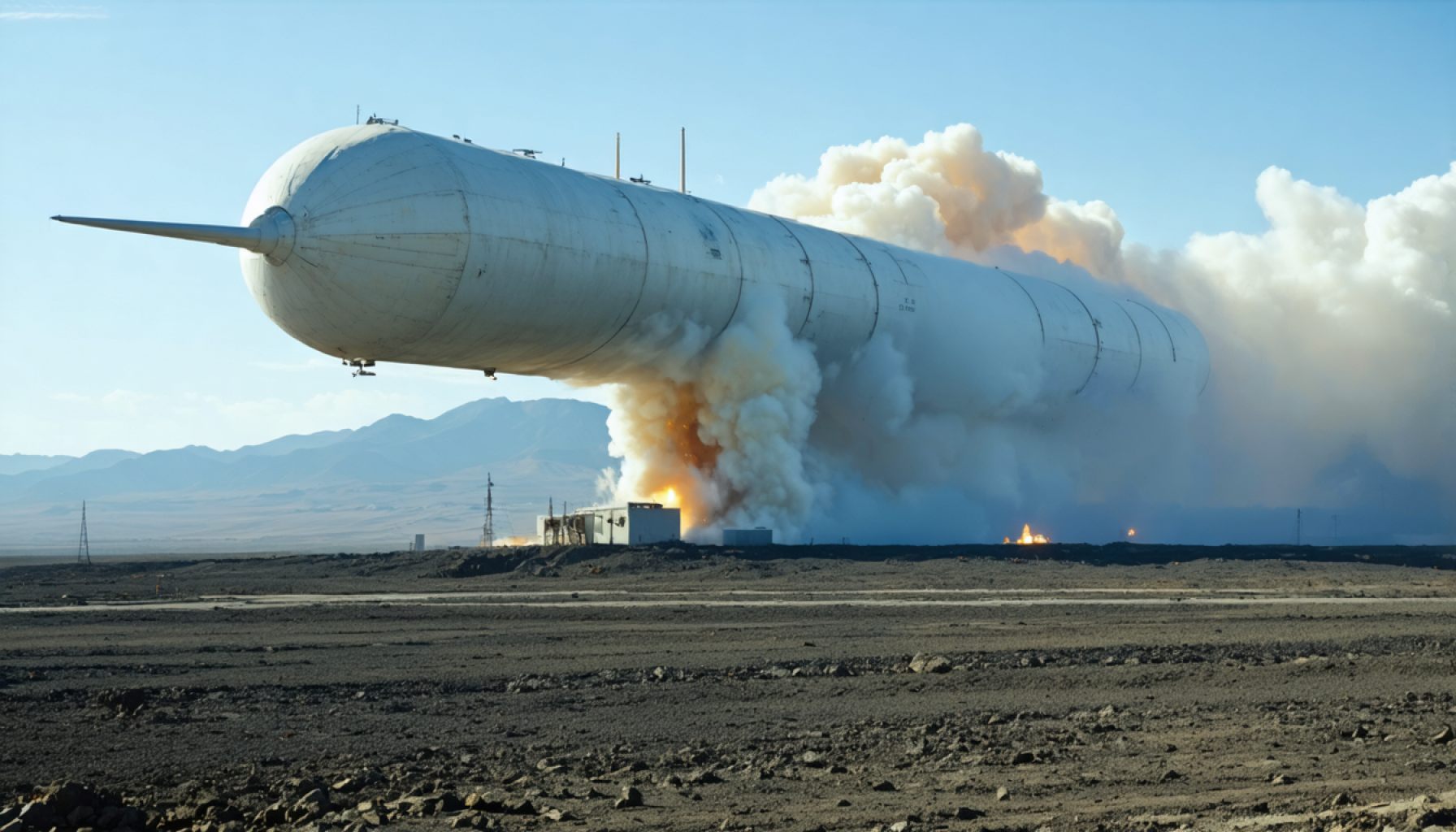- The 1994 decision by Ukraine to give up its nuclear arsenal highlights the risks of relying on external security assurances.
- Russia’s invasion of Ukraine in 2022 illustrates the fragility of such guarantees in the face of aggressive actions by authoritarian regimes.
- Nations like Poland and South Korea are re-evaluating their defense strategies in light of threats from neighbors like Russia and China.
- North Korea’s retention of nuclear weapons has provided it with a level of security rarely afforded to non-nuclear states.
- Countries may need to develop their own nuclear capabilities as a deterrent to safeguard sovereignty and security.
- The growing global tensions demand a reconsideration of military power dynamics in ensuring national safety.
In a world increasingly dominated by powerful authoritarian regimes, the stark reality of geopolitical survival is unfolding before our eyes. In 1994, Ukraine made a life-altering choice, surrendering its nuclear arsenal for security assurances from both the United States and Russia. Fast forward to 2022, Russia shattered that pact, invading Ukraine and pushing boundaries with impunity.
Now, nations like Poland and South Korea are witnessing the grim lesson of this betrayal: without their own nuclear capabilities, they are vulnerable to the whims of aggressive neighbors. Just take a look at North Korea. Despite being surrounded by threats, it has held onto its nuclear arsenal since 2006, avoiding serious military confrontation. This unsettling juxtaposition reveals that nuclear weapons may serve as the ultimate deterrent.
With rising tensions, the urgency escalates. Countries like Poland face a renewed menace from Russia, while in Asia, Japan and South Korea watch warily as China exerts its influence, eyeing territorial claims. Diplomatic assurances may no longer suffice; these nations might need their own nuclear programs to shield against encroachment.
While nuclear proliferation is daunting, waiting for it to occur in a one-sided manner is perilous. Controlled, modest nuclear capabilities could provide a stabilizing force against potential aggressors. The message is clear: in today’s treacherous landscape, flipping the script on military power might be the only way to ensure state sovereignty and protect citizens.
In considering modern security, the hard truth is that sometimes, strength lies in the tactical possession of power. Can these nations secure their futures without it? The clock is ticking.
The Nuclear Dilemma: Are Nations Justified in Pursuing Their Own Arsenals?
The Current Geopolitical Landscape
In the wake of escalating global tensions and the failures of diplomatic assurances, an increasing number of countries are reevaluating their defense strategies with a focus on nuclear capabilities. As historical agreements crumble, nations are placing greater emphasis on existential threats from authoritarian regimes, raising questions about autonomy, security, and military preparedness.
New Insights on Nuclear Proliferation and Deterrence
1. Nuclear Arms Race Trends: The fear of nuclear insecurity has spurred discussions on nuclear capability among several nations. According to recent reports, countries in Eastern Europe and Northeast Asia are showing increased interest in developing independent nuclear deterrents, learning from Ukraine’s experience in 1994. This trend is indicative of a potential new arms race where nations seek to establish their own deterrent capabilities.
2. Competitiveness in Defense Spending: Countries like Poland and South Korea are not only contemplating nuclear development but are also significantly increasing their defense budgets. Poland’s military expenditures have risen sharply, and South Korea has announced plans to enhance its military capabilities amid perceived threats from North Korea and China. This trend reflects a broader move towards strengthening national defense in the face of rising authoritarianism.
3. International Treaties and Responses: The situation is further complicated by ongoing discussions surrounding nuclear non-proliferation treaties (NPT) and potential reforms. Some nations are questioning the efficacy of these treaties as guarantees of safety and security, leading to debates on whether they should withdraw from them or renegotiate terms.
Key Considerations
– Pros and Cons of Nuclear Weapons:
– Pros: Potential to deter aggression, insurance for national security, and balance of power with adversaries.
– Cons: The risk of proliferation leading to regional instability, environmental dangers from nuclear accidents, and ethical considerations surrounding humanitarian impacts.
– Use Cases for Nuclear Capabilities: Countries might explore nuclear options as a strategy for:
– Deterrence: Maintaining peace through the threat of overwhelming retaliation.
– Bolstering Alliances: Strengthening ties with nuclear-capable allies.
– Bargaining Chip: Use as leverage in international negotiations.
FAQ Section
1. Why are some countries pursuing nuclear weapons today?
Countries are pursuing nuclear weapons primarily due to perceived threats from neighboring states, geopolitical instability, and the collapse of trust in international security agreements.
2. What would be the implications of a new nuclear arms race?
A new nuclear arms race could lead to increased military expenditure, potential miscalculations or accidents, heightened tensions, and broader regional conflicts, undermining global security.
3. How do countries justify the need for their own nuclear capabilities?
Countries justify the need for nuclear capabilities by citing examples of historical betrayals of security assurances, emerging threats from neighboring powers, and the inherent right to self-defense.
Suggested Related Links
– NATO
– <a href=https://www.un.org/United Nations
– Arms Control Association
In conclusion, as nations navigate the treacherous waters of modern geopolitics, the allure of nuclear capabilities remains strong. Countries must balance the inevitability of their defense strategies with the moral and humanitarian considerations of possessing such power. The time for decision-making is becoming increasingly urgent as tensions rise and the risk of conflict looms ever closer.
